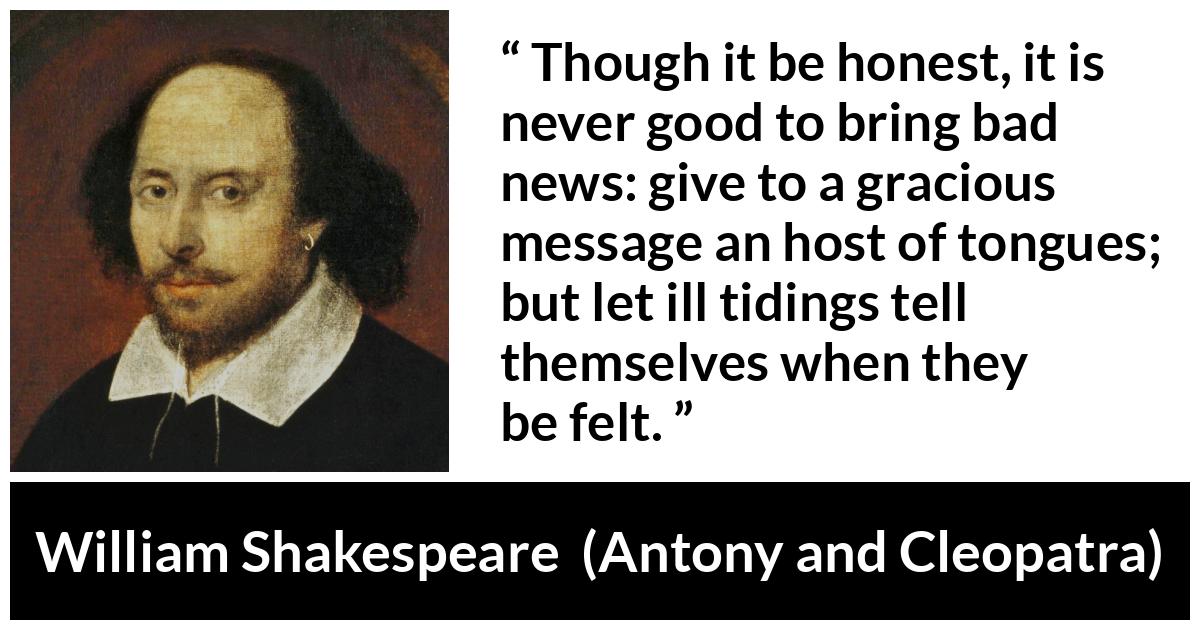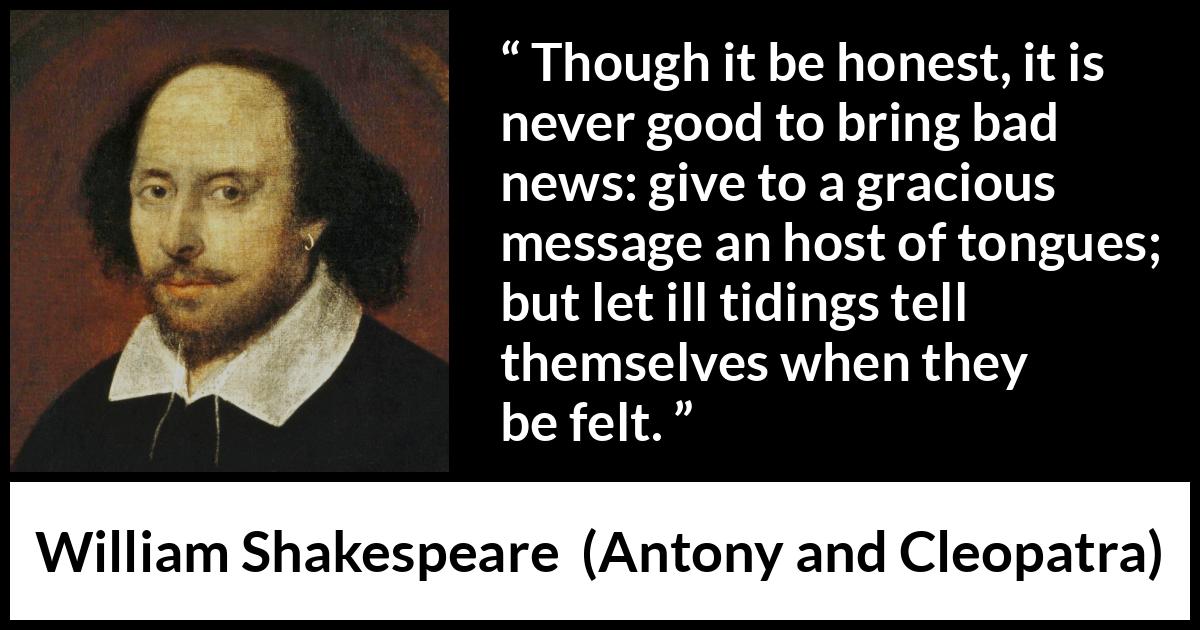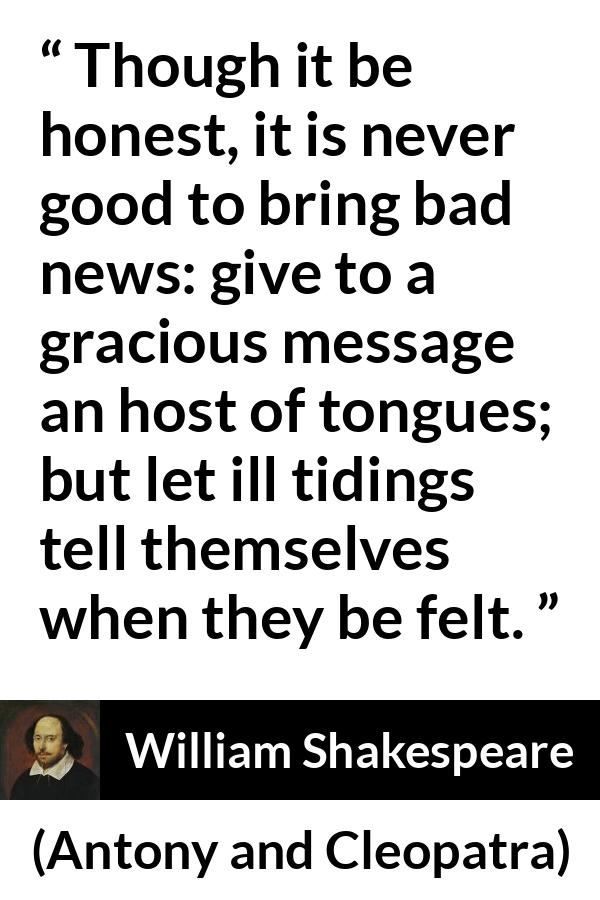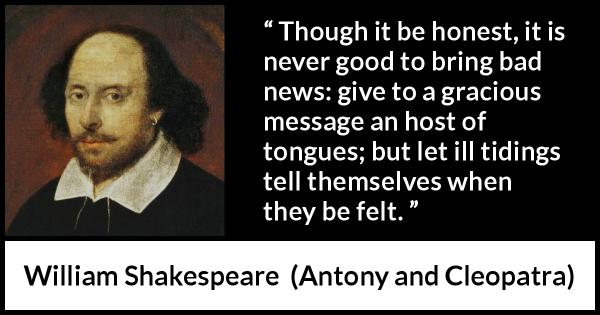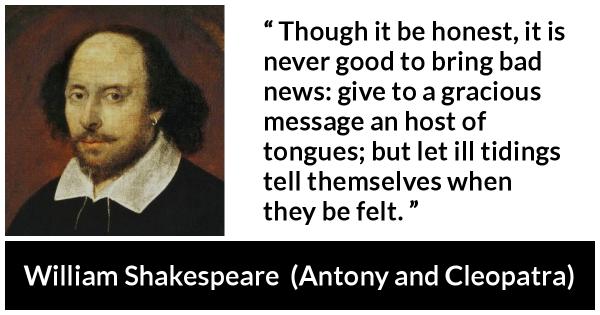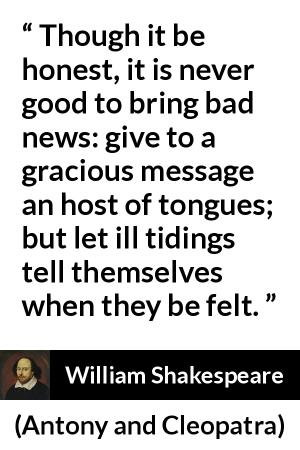“ Though it be honest, it is never good to bring bad news: give to a gracious message an host of tongues; but let ill tidings tell themselves when they be felt. ”
William Shakespeare, Antony and Cleopatra (1623). copy citation
| Author | William Shakespeare |
|---|---|
| Source | Antony and Cleopatra |
| Topic | honesty bad news |
| Date | 1623 |
| Language | English |
| Reference | Antony and Cleopatra, Act II, Scene 5 |
| Note | Written between 1603 and 1607 Cleopatra line |
| Weblink | http://www.gutenberg.org/cache/epub/1534/pg1534-images.html |
Context
“I will not hurt him. [Exit CHARMIAN.]
These hands do lack nobility, that they strike A meaner than myself; since I myself Have given myself the cause. [Re-enter CHARMIAN and Messenger.]
Come hither, sir. Though it be honest, it is never good To bring bad news: give to a gracious message An host of tongues; but let ill tidings tell Themselves when they be felt. MESSENGER. I have done my duty. CLEOPATRA. Is he married? I cannot hate thee worser than I do If thou again say 'Yes.'
MESSENGER. He's married, madam.” source
These hands do lack nobility, that they strike A meaner than myself; since I myself Have given myself the cause. [Re-enter CHARMIAN and Messenger.]
Come hither, sir. Though it be honest, it is never good To bring bad news: give to a gracious message An host of tongues; but let ill tidings tell Themselves when they be felt. MESSENGER. I have done my duty. CLEOPATRA. Is he married? I cannot hate thee worser than I do If thou again say 'Yes.'
MESSENGER. He's married, madam.” source
Meaning and analysis
Kwize Master
After Antony agreed to marry Caesar's sister, Octavia, to strengthen their political alliance, a messenger from Italy brings this news to Cleopatra. She then gets angry at him, threatening to kill him if he confirms this odious information. After calming down, Cleopatra tells him that if it is more honest to report bad news, it is better to let the unfortunate events make themselves known.
useful
useless
Sonya
A messenger arrives to report bad news to Cleopatra. Instead of delivering his message he is indirect and avoids answering her with the facts and she speculates on the news. She becomes increasingly upset, he deflects her questions until she threatens to kill him.
The meaning is that if you have bad news you should speak it plainly and concisely. It doesn’t mean to let the event make itself known, as in be discovered, but rather to tell the facts simply, and let the recipient feel what they will feel.
useful
useless
